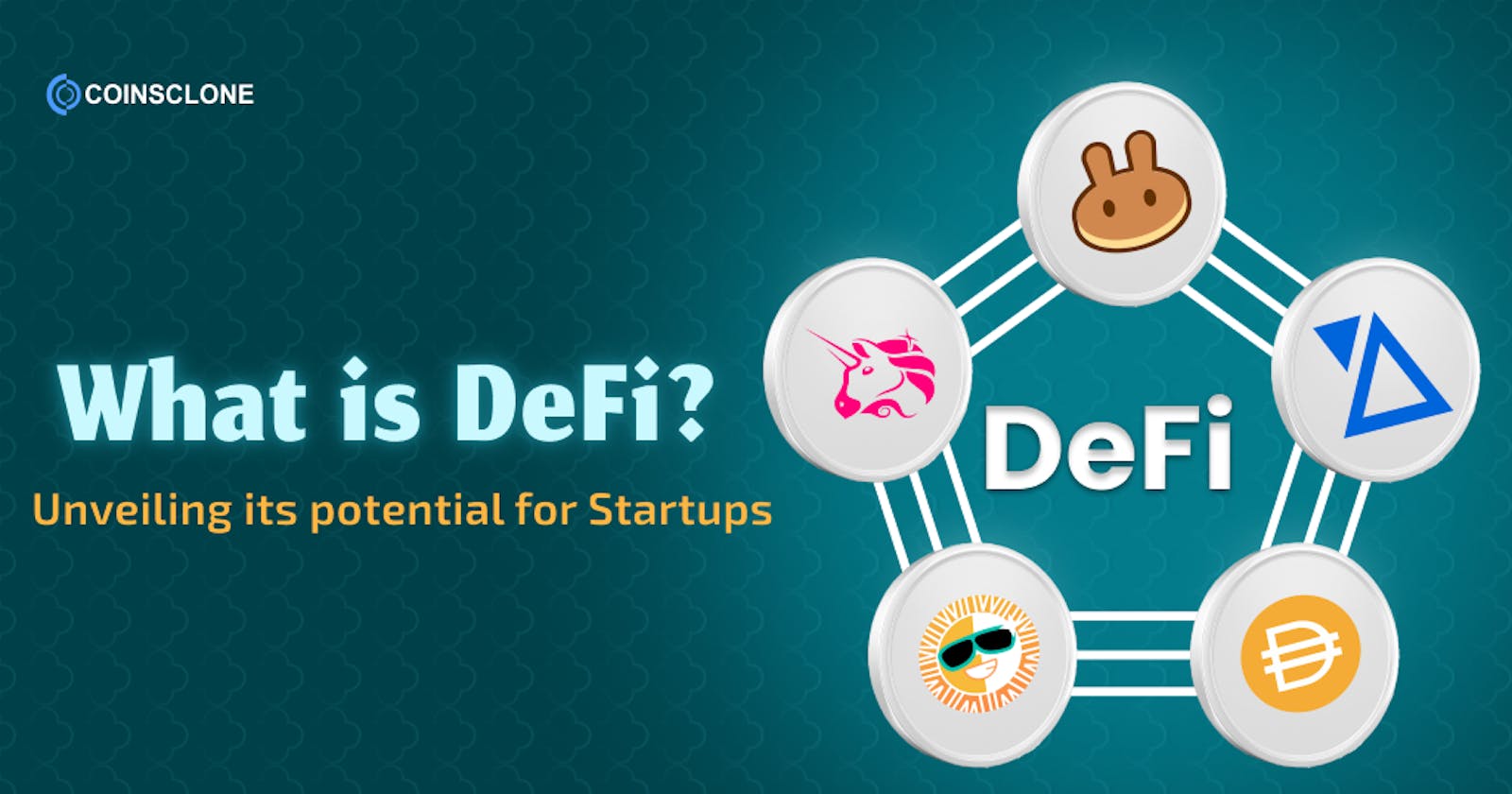What is DeFi and How Your Startup Can Thrive in the Decentralized Finance Ecosystem
What is DeFi? How does it Work?
Table of contents
The word DeFi, which stands for "decentralised finance," refers to financial services that are provided on public blockchains, mainly Ethereum. Earning interest, borrowing, lending, purchasing insurance, trading derivatives, trading assets, and many other activities are all possible with DeFi, but it's quicker and doesn't need paperwork or a third party. Similar to other cryptocurrencies, DeFi is anonymous, peer-to-peer (i.e., transfers funds directly between two individuals rather than via a centralised system), worldwide, and accessible to everyone.
Unlocking the Power of DeFi:
DeFi builds on the fundamental idea of Bitcoin, which is digital money, to provide a fully digital alternative to Wall Street without any of the expenses involved (think trading floors, office towers, and banker salaries). Anyone with an internet connection might be able to access more transparent, free, and equitable financial markets as a result of this.
Why Dive into DeFi?
Open: There is no requirement to "open" an account or submit an application. To gain access, simply create a wallet.
Pseudonymous: No personal information, like your name or email address, is required.
Flexible: You don't need to wait for lengthy transfers to be completed, seek permission, or pay exorbitant costs in order to move your assets anywhere at any time.
Quick: Rewards and interest rates can change as frequently as once every 15 seconds, and they can be substantially greater than those found on traditional Wall Street.
Transparent: The complete set of transactions is visible to all parties involved (private firms seldom give that type of openness)
As we pull back the layers of What is DeFi? we find a vibrant ecosystem based on smart contracts, blockchain technology, and openness. DeFi is more than just an idea; it's a movement that gives people all around the world the ability to manage their funds, encouraging creativity and changing the face of finance for future generations.
How does DeFi Work?
The majority of dapps, or "decentralised apps," which are used by users to interact with DeFi, are presently built on the Ethereum blockchain. It's not necessary to fill out an application or create an account, unlike a traditional bank.
Here are a few examples of how people are now interacting with DeFi:
Lending: Invest your cryptocurrency and make incentives and interest every minute, not only once a month.
Getting a loan: Get a loan quickly and easily without having to fill out any paperwork. This includes "flash loans," which are very short-term loans that are not offered by traditional financial institutions.
Trading: Exchange specific crypto assets with other users in a peer-to-peer fashion, much like you would with stocks, excluding the need for a brokerage.
Investing for the future: You may achieve higher interest rates than you would normally get from a bank by putting part of your cryptocurrency into savings account alternatives.
- Purchasing derivatives: Place long-or short-term wagers on particular assets. Consider these to be the cryptocurrency equivalent of futures or stock options.
Your Key to Success: DeFi Startup Guide
Understanding the Basics
Before diving in, grasp the fundamentals of decentralized finance. Familiarize yourself with terms like smart contracts, liquidity pools, yield farming, and decentralized exchanges (DEXs) such as Uniswap, SushiSwap, and PancakeSwap.
Developing a Unique Value Proposition
Stand out in the crowded DeFi space by identifying a niche or a pain point and crafting a solution that addresses it. Whether it's optimizing transaction speed, enhancing security, or introducing a novel financial instrument, innovation is the key.
Embracing Smart Contracts
Leverage the power of smart contracts to automate processes, ensuring trustless execution of agreements. This not only streamlines operations but also enhances security.
Building on Existing Protocols
Consider utilizing existing DeFi protocols like Ethereum, Binance Smart Chain, or Solana to expedite development. Alternatively, explore building on Layer 2 solutions to overcome scalability challenges.
Security First
Prioritize security at every stage of development. Smart contract audits, robust encryption, and adherence to best security practices are non-negotiable in the DeFi landscape.
User-Friendly Interface
Create an intuitive user interface that caters to both seasoned crypto enthusiasts and newcomers alike. User experience is crucial for widespread adoption.
Community Engagement
Build a strong community around your DeFi startup. Engage with potential users, address their concerns, and gather feedback to continuously improve your offerings.
Conclusion:
Embarking on a DeFi journey for your startup is not just a business decision; it's a commitment to reshaping the future of finance. By understanding the core principles, embracing innovation, and prioritizing user needs, your startup can thrive in the decentralized finance ecosystem. Seize the opportunity, and let the decentralized revolution begin!
